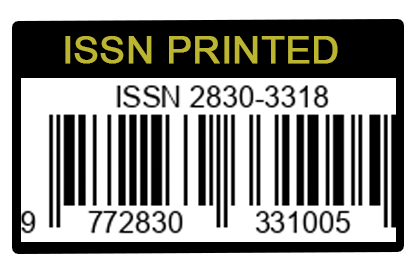Penerapan Fiqih Wudhu dan Shalat di MTs NU Kraksaan Probolinggo: Studi tentang Pemahaman dan Pengamalannya di Kalangan Siswa
DOI:
https://doi.org/10.53398/ja.v4i1.612Keywords:
Ablution;, Prayer;, Procedures for Ablution;, Meaning of Ablution;, Worship;Abstract
This study aims to explore the understanding and practice of wudhu (ablution) and shalat (prayer) among 7th-grade students at MTs NU Kraksaan Probolinggo, as part of fiqih education, which plays a vital role in shaping students' religious character. The research employed a qualitative descriptive approach. Data were collected through in-depth interviews with students and teachers, direct observation of worship activities, and documentation of fiqih learning materials used in class. The findings reveal that most students possess a basic understanding of the procedures for wudhu and shalat, but a significant gap remains in actual practice—particularly regarding the accuracy of implementation and the internalization of the spiritual meaning behind the rituals. Factors such as home prayer habits, time constraints, and limited opportunities for hands-on practice at school contribute to this gap. On the other hand, Islamic religious education teachers have delivered the material systematically, but challenges persist in ensuring students’ emotional engagement and consistent practice beyond the classroom. This study provides a theoretical contribution to the development of fiqih education at the Madrasah Tsanawiyah level by emphasizing the importance of integrating cognitive, affective, and psychomotor aspects in worship education. Practical recommendations include increasing hands-on practice during fiqih lessons, creating a school environment that supports regular prayer, and encouraging active parental involvement in guiding religious practice at home. Collaboration among teachers, schools, and families is key to cultivating correct, consistent, and meaningful religious habits in students
References
Brondz, I. (2012). Analytical Methods in Quality Control of Scientific Publications. American Journal of Analytical Chemistry, 03(06), 443–447. https://doi.org/10.4236/ajac.2012.36058
Conway, C., & Stanley, A. M. (2006). [Review of Review of Qualitative Research and Evaluation Methods, by M. Q. Patton]. Bulletin of the Council for Research in Music Education, 16(8), 83–88. https://www.jstor.org/stable/40319463
Dahlan, M. (2015). Pendekatan Antropologis Dalam Paradigma Usul Fikih. Jurnal Madania, 19(1).
Fikri, M. S. (2014). Implementasi Pendidikan Karakter Melalui Pembelajaran Pendidikan Agama Islam Di Smp Khadijah A. Yani Surabaya [Undergraduate, UIN Sunan Ampel Surabaya]. https://digilib.uinsa.ac.id/1939/?utm_source=chatgpt.com
Iskandar, D. (2022). Metodologi Penelitian Kualitatif. Maghza Pustaka. https://katalog-pustaka.uinbukittinggi.ac.id/pustaka/main/item/101054
Mahbubi, M. (2013). Pendidikan Karakter Implementasi Aswaja Sebagai Nilai Pendidikan Karakter. Pustaka Ilmu.
Mahbubi, M. (2025). Materi PAI: Fikih. CV Global Aksara Press.
Mahbubi, M., & Karomah, S. (2024). Penerapan Metode Pembelajaran Kooperatif Tipe Jigsaw Pada Materi Fiqih Dalam Meningkatkan Hasil Belajar Siswa. J-Simbol: Jurnal Magister Pendidikan Bahasa dan Sastra Indonesia, 11(02), 304–317. https://doi.org/10.23960/J-Simbol
Manzilati, A. (2017). Metodologi Penelitian Kualitatif. Zishof eLibrary. https://katalog-pustaka.uinbukittinggi.ac.id/pustaka/main/item/96739
Miskiyyah, U. Z., & Nihayah, I. (2024). Implementasi Metode Role Playing Terhadap Minat Belajar Peserta Didik Mata Pelajaran Fiqih Kelas Ix Di Mts Thoriqul Ulum. Jurnal Intelek Insan Cendikia, 1(6), Article 6. https://jicnusantara.com/index.php/jiic/article/view/798
Nasikhah, K., & Badrus, B. (2020). Implementasi Pembelajaran Kontekstual pada Mata Pelajaran Fikih di MTsN 7 Kepung Kediri. Intelektual: Jurnal Pendidikan Dan Studi Keislaman, 10(3), Article 3. https://doi.org/10.33367/ji.v10i3.1397
Pugu, M. R., Riyanto, S., & Haryadi, R. N. (2024). Metodologi Penelitian; Konsep, Strategi, dan Aplikasi. PT. Sonpedia Publishing Indonesia.
Salmaa. (2023). Metodologi Penelitian: Pengertian, Manfaat, Jenis, Contoh. https://penerbitdeepublish.com/metodologi-penelitian/
Downloads
Published
How to Cite
Issue
Section
License
Copyright (c) 2025 Jurnal Al-Kifayah: Ilmu Tarbiyah dan Keguruan

This work is licensed under a Creative Commons Attribution-NonCommercial-ShareAlike 4.0 International License.



.png)






